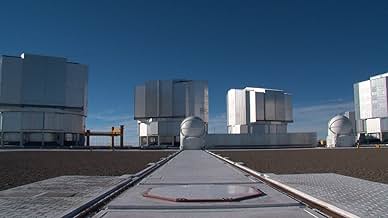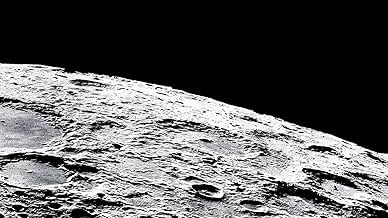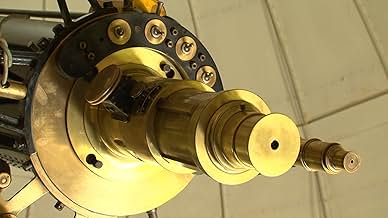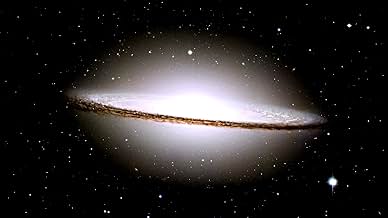Segui queste due ricerche condotte nel deserto cileno di Atacama: una da astronomi in cerca di risposte sulla storia del cosmo e l'altra da donne che cercano i resti di persone care uccise d... Leggi tuttoSegui queste due ricerche condotte nel deserto cileno di Atacama: una da astronomi in cerca di risposte sulla storia del cosmo e l'altra da donne che cercano i resti di persone care uccise dal regime di Pinochet.Segui queste due ricerche condotte nel deserto cileno di Atacama: una da astronomi in cerca di risposte sulla storia del cosmo e l'altra da donne che cercano i resti di persone care uccise dal regime di Pinochet.
- Premi
- 13 vittorie e 20 candidature totali
Recensioni in evidenza
Thanks Patrick for this film as needed.
The brutal results of Pinochet's military dictatorship are meshed with the search for the origins of the universe. Both subjects deal with the past, as we only have past and future; there is no present as Augustine said many years ago.
So, astronomers are really archaeologists. They study space to discover the past. Writer/director Patricio Guzmán combines this "archaeology" with the archaeologists who search the desert for the bodies buried by Pinochet.
A fascinating story.
As a result, the world's astronomers flock to the Atacama to gaze out into the universe and to search for evidence and artifacts from the beginning of time. These "archaeologists of time" decompose the stars into their constituent elements one of which is calcium.
Elsewhere in the desert, other "archaeologists" search among the pebbles and dust for evidence of calcium. They are looking for bones. Or at least fragments of bones. They are the mothers, brothers, sisters and wives of Chile's disappeared. During Pinochet's military dictatorship many thousands of Chileans were abducted and killed and their bodies disposed of in the Atacama. Forty years later their relatives still search the desert for any sign or bone fragment that might give a clue to where their loved ones lie.
Patricio Guzman juxtaposes these two sets of archaeologists in his beautiful documentary, "Nostalgia for the Light". In many ways they both seek answers to the same question. They try to find the true meaning of life.
There are some very moving scenes in this movie. In one, a lady in her seventies sits in the desert, in tears, and proclaims that she will never stop looking for the remains of her loved one. In the other, a young Chilean astronomer, whose parents were killed by the government when she was only one, clutches her new born baby (this scene is just wonderful). She displays the transcendent wisdom of someone of far greater years as she explains how she has, through her work and observations, come to terms with their murder.
An unmissable movie.
http://sofia-notes.blogspot.com/2011/09/nostalgia-for-light.html
A group of women search for their beloved ones killed during Pinochia's Military dictatorship. Astronomers discover the early beginnings of life. Archaeologists narrate the history of lost civilizations. They revisit the desert each time in search for answers to the same questions.
We shift through two realms through the ethereal sounds and sights that form throughout the film. The past, present and future constitute our lives. Amnesia is a nation's curse up until front- liners revive history.
The images of a body with legs still chained and wrists bound, people digging in the desert for remains of their loved ones, a country that does not acknowledge the recent past, the testimony of a woman who lost her parents and drawings from the Chacabuco concentration camp merge with images of galaxies and supernovas, and talk of a current of energy, new life, pulsing through our existence. It is powerful stuff. Transitions and better organization are all that are wanting with this film.
Lo sapevi?
- QuizIncluded among the "1001 Movies You Must See Before You Die", edited by Steven Schneider.
- Citazioni
[last lines]
[in Spanish, using English subtitles]
Gaspar Galaz - Astronomer: [voiceover] I am convinced that memory has a gravitational force. It is constantly attracting us. Those who have a memory are able to live in the fragile present moment. Those who have none don't live anywhere. Each night, slowly, impassively, the centre of the galaxy passes over Santiago.
- ConnessioniEdited into P.O.V.: Nostalgia for the Light (2012)
I più visti
- How long is Nostalgia for the Light?Powered by Alexa
Dettagli
- Data di uscita
- Paesi di origine
- Sito ufficiale
- Lingue
- Celebre anche come
- Nostalgia for the Light
- Luoghi delle riprese
- Aziende produttrici
- Vedi altri crediti dell’azienda su IMDbPro
Botteghino
- Lordo Stati Uniti e Canada
- 163.962 USD
- Fine settimana di apertura Stati Uniti e Canada
- 5664 USD
- 16 gen 2011
- Lordo in tutto il mondo
- 410.903 USD
- Tempo di esecuzione1 ora 30 minuti
- Colore
- Mix di suoni
- Proporzioni
- 1.85 : 1
Contribuisci a questa pagina








